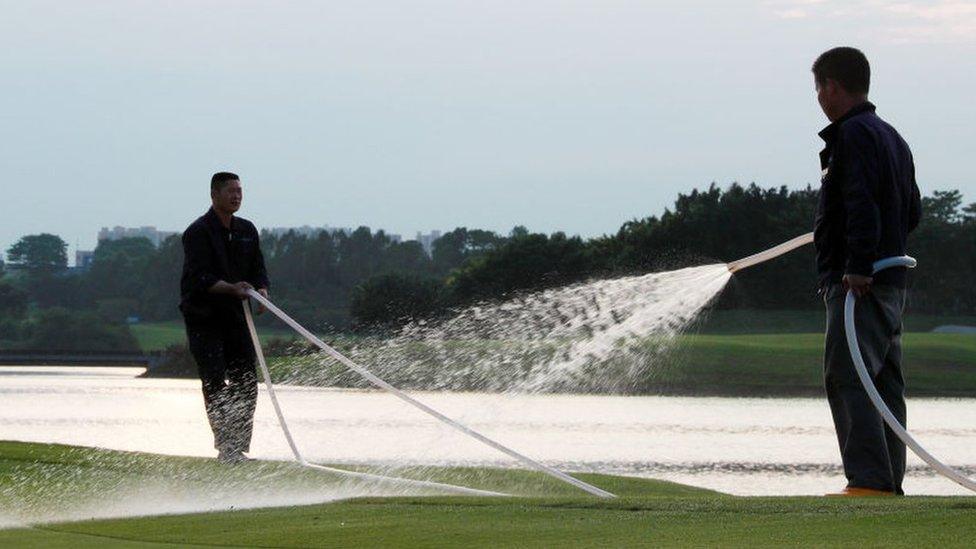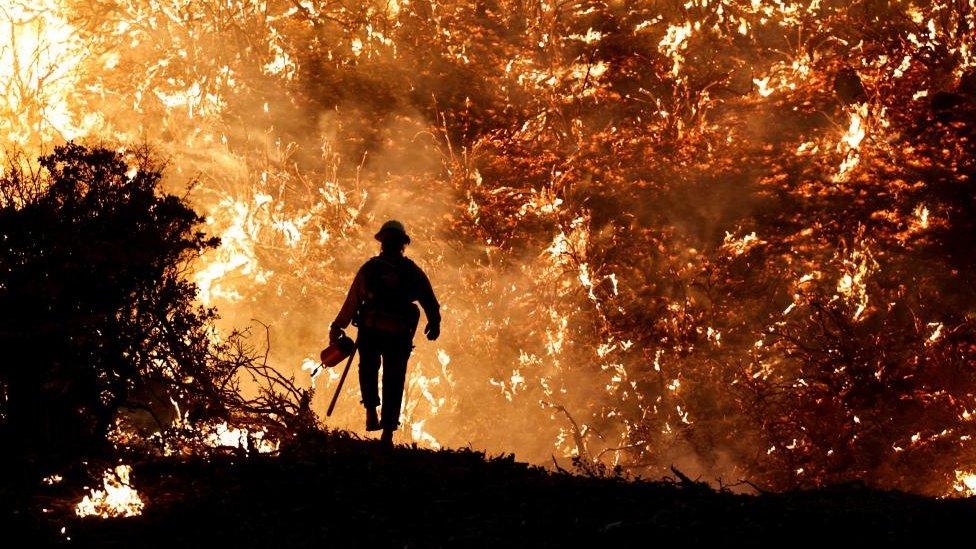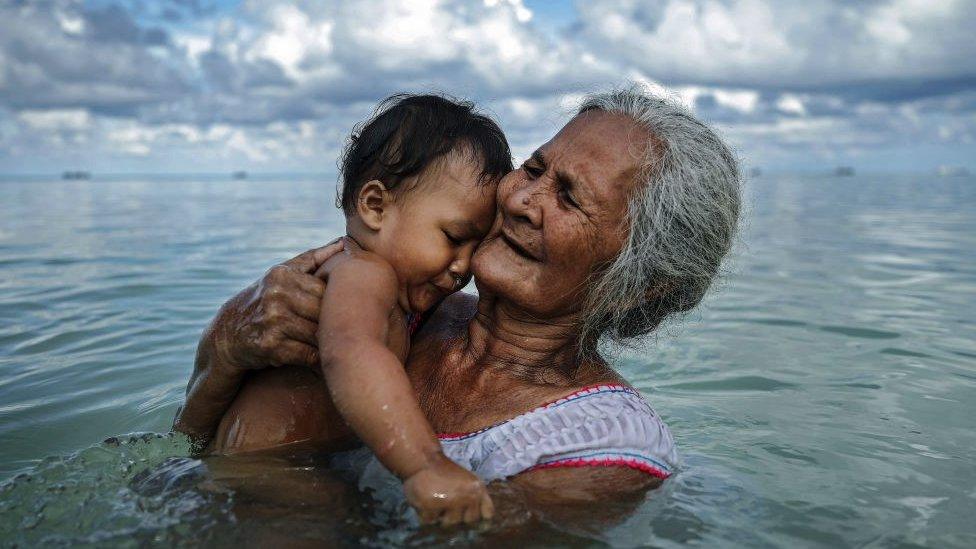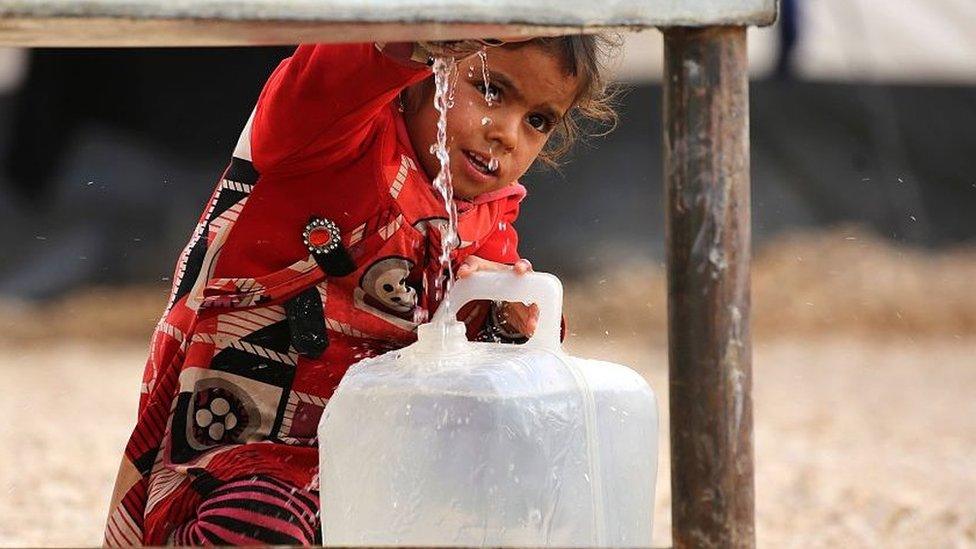UN warns against 'vampiric' global water use
- Published

A United Nations report has warned of a looming global water crisis and an "imminent risk" of shortages due to overconsumption and climate change.
The world is "blindly travelling a dangerous path" of "vampiric overconsumption and overdevelopment", the report says.
Its publication comes before the first major UN water summit since 1977.
Thousands of delegates will attend the three-day gathering in New York which begins on Wednesday.
UN Secretary General Antonio Guterres says water, "humanity's lifeblood", is being drained by "unsustainable water use, pollution and unchecked global warming".
The report, published by UN Water and Unesco, external, warns that "scarcity is becoming endemic" because of overconsumption and pollution, while global warming will increase seasonal water shortages in both areas with abundant water and those already strained.
Richard Connor, the lead author of the report, said that about 10% of the global population "currently lives in areas that are high or critical water stress".
"In our report, we say that up to 3.5 billion people live under conditions of water stress at least one month a year," he told the BBC.
According to the most recent UN climate report, published Monday by the IPCC expert panel, "roughly half of the world's population currently experience severe water scarcity for at least part of the year".
Mr Connor told reporters that "uncertainties are increasing" when it comes to global water supply.
"If we don't address it, there definitely will be a global crisis," he said.
UNDP Associate Administrator Usha Rao Monari told the BBC that resources would need to be managed more carefully in the future.
"There is enough water on the planet if we manage it more effectively than we have managed it over the last few decades," she said.
"I think we will have to find new governance models, new finance models, new models of using water and reusing water than ever before. I think that technology and innovation will play a very large role in looking at how to manage the water sector and the use of water."
The summit, co-hosted by the governments of Tajikistan and the Netherlands, will gather some 6,500 participants, including 100 ministers and a dozen heads of state and government.
- Published20 March 2023

- Published20 March 2023

- Published2 August 2021

